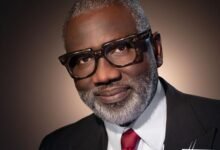Own your own life
Many of us with normal faculties have mentally handicapped ourselves and victimised ourselves by belief systems. We limit ourselves in search for security, never realising how easily others can confine us further, using our limitations against us.
There is a world of difference between praise and recognition. Recognition, as we shall use it here, is a factual observation. It is neither a compliment, nor a value judgment. It is simply what the name implies, recognition that a person has done the best she or he can, based on her or his present level of awareness.
The major difference between praise and recognition is that praise is a value judgment. If you tell someone that he is a “great person” for doing something for you, you are also saying that he is “not such a great person” if he doesn’t fulfill your desires.
Adults, young people, and especially children, respond more positively to recognition than they do to the sweet talk of praise. They need to know that they occupy a special place in the lives of those around them. They want to be treated as persons, not non-persons; to be accepted for what they are, not what someone thinks they should be. If they are given recognition for what they do based on their capabilities, they will sense that they are being acknowledged as individuals and not evaluated on the basis of their actions. They will feel that they are unique and worthy regardless of whether or not they measure up to other people’s standards.
The difference between praise and recognition may be subtle, but it is highly important in developing total self-confidence. If people are not given the recognition they need to make them feel accepted as the truly unique individuals they are, they will resort to seeking praise and become its prisoner.
Freeing yourself from others
We have already seen the high price we must pay for dependency and how our whole effort must be concentrated on trying to pry open the clenched grip each one of us has on the other. We are reluctant to lose the approval of family, friends, and co-workers and peer groups by doing what we feel and know we should do. And so we let opportunity after opportunity pass by, afraid to pay the price of emancipation. Yet, we can break away anytime we want. So, the problem is not with someone else – the problem is with us.
Your fundamental responsibility is your own physical and emotional well-being. By not breaking away, you are contributing to a situation of mutual dependency, which imprisons those upon whom you rely as well as you. The fact is that, in the long run, they will get over their hurt or disappointment and, most importantly, if you meet your own needs first; they will have new respect for you.
According to Dr James Campbell, awareness and choice are two of the most misunderstood concepts that he encounters in the practice of psychiatry. One must have awareness about what is available before a choice can be made. This seems logical, yet because people do not keep an open mind, that choice does not exist. Dr Campbell believes that it is this very failure that leads people to attempt to change things. Others deny its existence of choice because the particular choices they tell themselves they need are not there. “To limit our ability to create our own experience in life because the choices we think we need are not available is a tragedy of Shakespearean proportion.”
Nearly everyone is put off by full-grown people expecting others to take care of them – like the coworker who cannot do anything on his own, the husband who blames all his unhappiness on his wife or the man whose first thought who first thought when meeting you is always: ”What can you do for me?”
The new social realities require that you do more for yourself and rely less on others to take care of you. If you meet these requirements, Dr Gary Emery, reiterates that you will reap the benefits of technological advances of and the richness of more self-determined way of life.
Social interdependency
Dr Emery is not suggesting that you can or should do away with constructive and appropriate dependency. “In many areas where you do not have the skills, it is sensible and desirable to depend on others. Often the skills and procedures of some others are more readily available to you, cost less and present better quality than you could provide for yourself.” This is the normal course of social interdependency. Independence does not mean you have to do everything by yourself and assume every skill necessary to free you from all reliance on the services of others.
Dr Emery is also not advocating that you become a hermit or that you isolate yourself from others. “One of the paradoxes of life,” he observes, “is that the more independent you are, the closer you can be to others. Spontaneity of feelings and depending on intimacy are by products of increased independency. Self-isolation and loneliness are the results of excessive dependency, not independence.”
Pulling your own strings
Dr Wayne Dyer wrote “Pulling Your Own Strings” for those who would like to be completely in charge of their own lives. This includes everybody aspiring to do just that: owning their own lives. It is for those who will not automatically do things according to the plans of other people.
Dr Dyer believes that to live the way you choose; you have to be a bit rebellious. “You have to be willing to stand up for yourself. You might have to be a bit disturbing to those who have strong interests in controlling your behaviour – but if you are willing, you will find that being your own person, not letting others do your thinking for you, is a joyful, worthy and absolutely fulfilling way to live.”
He acquiesces that many people will feel his views counterproductive, and would accuse him of encouraging people to be rebellious and contemptuous of established authority. He makes no bone about that. He believes that we should be assertive, even pugnacious to avoid being manipulated.
Furthermore, Dr Dyer thinks that you often must be unreasonable, perhaps “insubordinate,” to people who will manipulate you. To be otherwise is to be victimised, and he believes, the world is full of people who would love you to behave in whatever ways are most convenient for them.
He assuages that a special kind of freedom is available to you if you are willing to take the risks involves in getting it: the freedom to wander where you will about life’s terrain, to make all your own choices. “The central insight must be that individuals have the RIGHT to decide how they will live their lives, and that as long as their exercise of this right does not infringe on the equal rights of others, any person or institution that interferes ought to be viewed as a victimizer.”
Essentially, each person’s life is unique, separated from every other life in the true experiential sense. No one else can live your life, feel what you feel, get into your body and experience the world the way you do. This is the only life you get, and it is too precious to let others take advantage of it.
Nothing can stop you from achieving total self-confidence, if you really want to. But until you free yourself from the mistaken certainty that dependency, manipulation, conformity, comparison and competition are essential to your well-being, you will not be able create the life you desire. Only when you decide that you are going to do everything you possibly can to free yourself on a mental, emotional, physical and spiritual level, will you be able to be the self-confident person you would like to be. The question remains – bondage or liberty? The choice is up to you.





